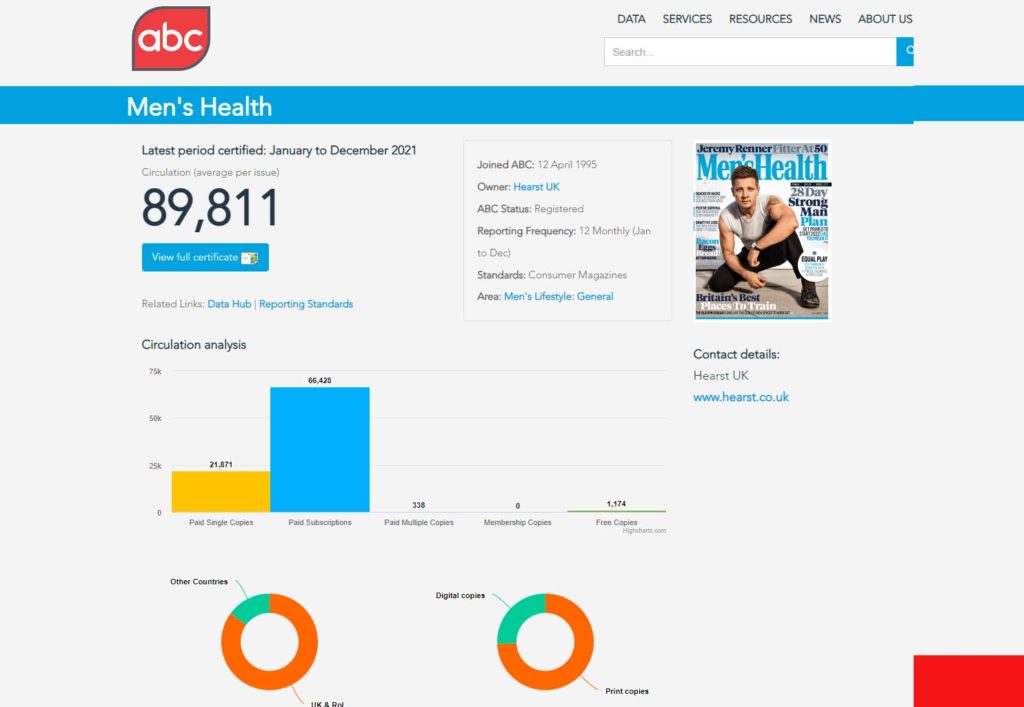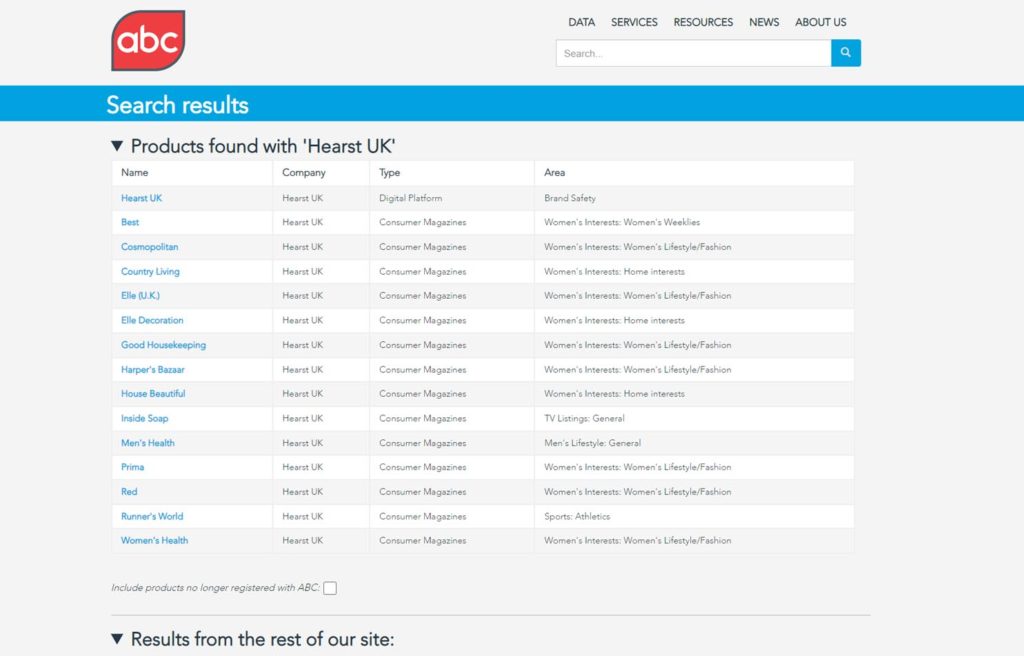Media Industries (and Audiences)
Useful Links
https://en.wikipedia.org/wiki/Hearst_Communications
https://menshealthmediakit.com/r5/home.asp
https://www.abc.org.uk/product?a=abc&search=Hearst%20UK
https://www.abc.org.uk/product/6823
https://www.statista.com/statistics/381735/men-s-health-monthly-reach-by-demographic-uk/
The main focus for industry for this close study product is Hearst publishing, the multinational conglomerate which publishes Men’s Health and a range of other fashion and lifestyle magazines. This will provide a case study of a commercial media institution where the primary – though not sole – focus is print.
• Case study of Hearst as a conglomerate.
• Developments in new technology mean that many of their brands are now online as well as in print – including the Men’s Health website.
• Institutional strategies for keeping print popular and relevant in the contexts of developing technology and competition from other brands.
• Cultural industries including Hesmondhalgh.
Task 4: Using the links above (and any other links you wish to follow), research and engeage in some wider reading around, ownership, audience, strategies of marketing, distribution and financing for Men’s Health. Record your findings either as screen grabs (as I have done below) or in a table, or a list, or as sentences and paragraphs that you could use for your essay. Aim to find out at least 10 significant factual (statistical?) points.



Social and cultural contexts
Men’s Health magazine represents a notable social and cultural shift in expectations of contemporary masculinity (a shift which could be usefully compared with the advert for Score Hair cream). The study of Men’s Health can be linked to social and cultural contexts through reference to body image and changes in what society deems acceptable and unacceptable representations.

